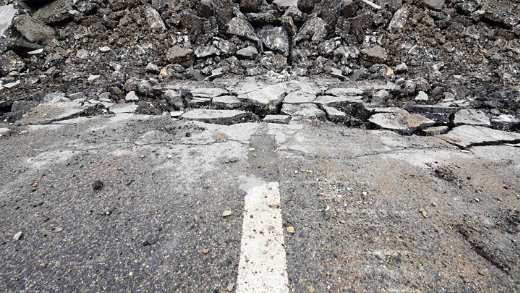The war in Ukraine and rising geopolitical tensions are prompting governments around the world to beef up defence spending. We explore the key investment implications.
Read this article to understand:
- Why defence budgets will continue to rise
- What this means for defence companies
- The key ESG implications
On February 24, 2022, Russia invaded Ukraine with dozens of missile strikes on cities all over the country. In the early days of the conflict, Russia seemed headed for a swift victory as its tanks rolled towards Kyiv.
Eighteen months later, with tens of thousands of dead on both sides, the conflict looks like it might be approaching a violent stalemate. Ukrainian resistance has been fierce, although there is little doubt the country would have been unable to withstand the Russian onslaught on its own. Western nations have ploughed tens of billions of dollars into bolstering its defences.
Rising tensions further afield are adding to the pressure on governments to significantly up defence spending around the world. This is providing a boon to defence companies, with significant implications for investors.
A more dangerous world
Total global military expenditure rose 3.7 per cent in real terms in 2022, to reach a new high of $2.24 trillion, according to the Stockholm International Peace Research Institute (SIPRI). Military expenditure by states in Central and Western Europe totalled $345 billion. In real terms, it surpassed spending in 1989, at the end of the Cold War, for the first time.1
Defence budgets have become a priority for governments, especially in Europe
“The peace dividend era is behind us. The world is getting a more dangerous place and defence budgets have become a priority for governments, especially in Europe,” says Ahmed Behdenna, senior portfolio manager, multi-strategy.
He envisages European defence spending continuing to rise at a brisk pace for the foreseeable future, reversing the trend of falling spending that has characterised the past 60 years. Whereas European Union countries were on average spending just below four per cent of GDP on military related expenditure in 1960, by 2020 this was just over 1.5 per cent.2
Demand and deterrents
The scale of demand for ammunition and explosives from Ukrainian armed forces has revealed European stockpiles of military equipment to be inadequate. Spending will need to rise substantially if the region is to establish a sufficient deterrent.
This is testing Europe’s industrial production capacity, with companies calling for firm commitments from governments to help fund significant investment in manufacturing capacity.
Military spending will need to rise substantially if Europe is to establish a sufficient deterrent
British company BAE Systems announced on July 10 it had secured new orders from the UK government to boost the supply of munitions. It says the deal will allow it to lift production capacity of key 155mm artillery shells, the standard for most NATO howitzers – long-range artillery launchers – eight-fold.3
According to SIPRI, military spending by NATO members rose to $1.232 trillion in 2022, with the US accounting for 71 per cent of the total. UK prime minister Rishi Sunak is calling on NATO members to spend a minimum of two per cent of GDP on defence. That aspiration was set out nearly two decades ago but only nine out of 30 members achieved this in 2022.
Figure 1: NATO 2022 defence spending
Note: Estimated military spending of NATO nations in 2014 and 2022 and share of GDP (in billion constant 2015 US dollars).
Source: North Atlantic Treaty Organization, July 7, 2023.4
Although the war in Ukraine may have been responsible for much of the rise by NATO members, it is hard to envisage defence spending declining much, even if the war comes to an early end, given pressure to combat the threat posed by China, Iran and North Korea.
China crisis
While the US spends considerably more than any other nation – last year it spent three times as much as China, its biggest rival – the latter’s spending is growing fast, having risen more than four per cent in 2022.
Figure 2: China's growing military strength
Source: World Bank, Aviva Investors calculations, July 2023.5
As China flexes its muscles over Taiwan, the South China Sea and other parts of Asia, the US, and other nations such as Japan and Australia, are being forced to respond. Bank of America analysts reckon spending by NATO nations, and other “friendly” countries such as Australia, could soar to $1.8 trillion by around 2030.6
Richard Saldanha, portfolio manager on the Aviva Investors Global Equity Income strategy, explains surging government spending on defence contracts means many companies are struggling to keep up with demand, leading to more backlogs.
We’ve seen exceptionally strong growth in orders across the board for defence companies
BAE Systems, for instance, in February reported record orders of £37.1 billion in 2022, almost twice as much as the prior year’s revenue. That propelled its order backlog to a record £58.9 billion, equivalent to 2.5 years of sales.7
“We’ve seen exceptionally strong growth in orders across the board for defence companies, which should provide good visibility on earnings over the coming years,” says Saldanha. “If you then think about the uncertain world right now, these companies are generating consistent cashflows and paying consistent dividends. That makes them compelling from an income standpoint,” Saldanha says.
Cyber threats
James Balfour, portfolio manager on the Aviva Investors UK Equity Income strategy, also has sizeable positions in UK defence stocks. The stakes were built up prior to the war in Ukraine in the belief political tensions in the Pacific and elsewhere were unlikely to abate.
He says while it has been evident for some time governments would need to spend more money on traditional military equipment, benefitting the industry overall, companies with exposure to the right technologies stand to benefit most.
The growing threat posed by cyber warfare means this is a big growth area
“The growing threat posed by cyber warfare means this is a big growth area. If you take Chemring or BAE Systems, for example, both have divisions providing cyber-security services,” Balfour says.
Saldanha agrees. “It is the same if you speak to any defence company. Governments are prioritising spending on intelligence and cybersecurity over more traditional types of spending because the nature of warfare is changing. It's less about troops on the ground and more about countering threats or identifying them before they arrive.”
China-based hackers in May breached email accounts at two-dozen organisations, including US government agencies, in an apparent spying campaign aimed at acquiring sensitive information.
A ransomware attack on a software supplier In August 2022 hit the UK’s National Health Service. It caused widespread outages across the organisation, affecting services including patient referrals, ambulance dispatch, out-of-hours appointment bookings, mental health services and emergency prescriptions.
Defence and diversification
Behdenna says the uncertain macroeconomic backdrop, with recession an ongoing risk as central banks struggle to combat inflation, strengthens the sector’s appeal relative to the broader equity market.
“In such an environment, this sector offers highly defensive characteristics that are highly prized. The fact exposure can help to diversify portfolios is an extra benefit,” he adds.
Few defence companies offer a pure play on increased defence expenditure
Since most big defence companies also have commercial aerospace divisions, few offer a pure play on increased defence expenditure. Take US company Raytheon. While roughly half of its business is in defence, the other half is in commercial aerospace; it owns Pratt and Whitney, which makes jet engines for the likes of Airbus and Boeing.
However, in most instances that does not diminish the investment case, particularly right now. Although notoriously cyclical, commercial aerospace is currently enjoying buoyant conditions as the industry recovers strongly from a COVID-related downturn.
“That diversification means you have a defensive earnings stream coming out of defence businesses, which the likes of Raytheon have been using to invest and grow their commercial aerospace operations,” Saldanha explains.
The ESG picture
Contrary to misconceptions, the ESG view on defence companies has always been nuanced and pragmatic rather than inherently negative. Few managers, if any, have applied a blanket screen to exclude defence companies as the maintaining of robust military capabilities by “responsible” state actors is essential in maintaining peace and stability.
This will allow us to take a nuanced view on companies manufacturing nuclear weapons where we have reassurance on the intended use
Mirza Baig, global head of ESG, says while Aviva Investors still refuses to invest in companies making cluster bombs, land mines and other controversial types of armaments that result in indiscriminate harm to civilians, the war has led to a more refined stance towards nuclear weapons for instance.
“This does not change our deep concern over nuclear weapons; but will allow us to take a nuanced view on companies manufacturing nuclear weapons where we have reassurance on the intended use, specifically as deterrent rather than active deployment,” he says.
As for Saldanha, while he remains mindful of ESG considerations when investing in defence stocks, and has exclusions in place, “it is important to recognise that from a societal standpoint, defence companies have a huge role to play in terms of protecting us from these threats”.


















